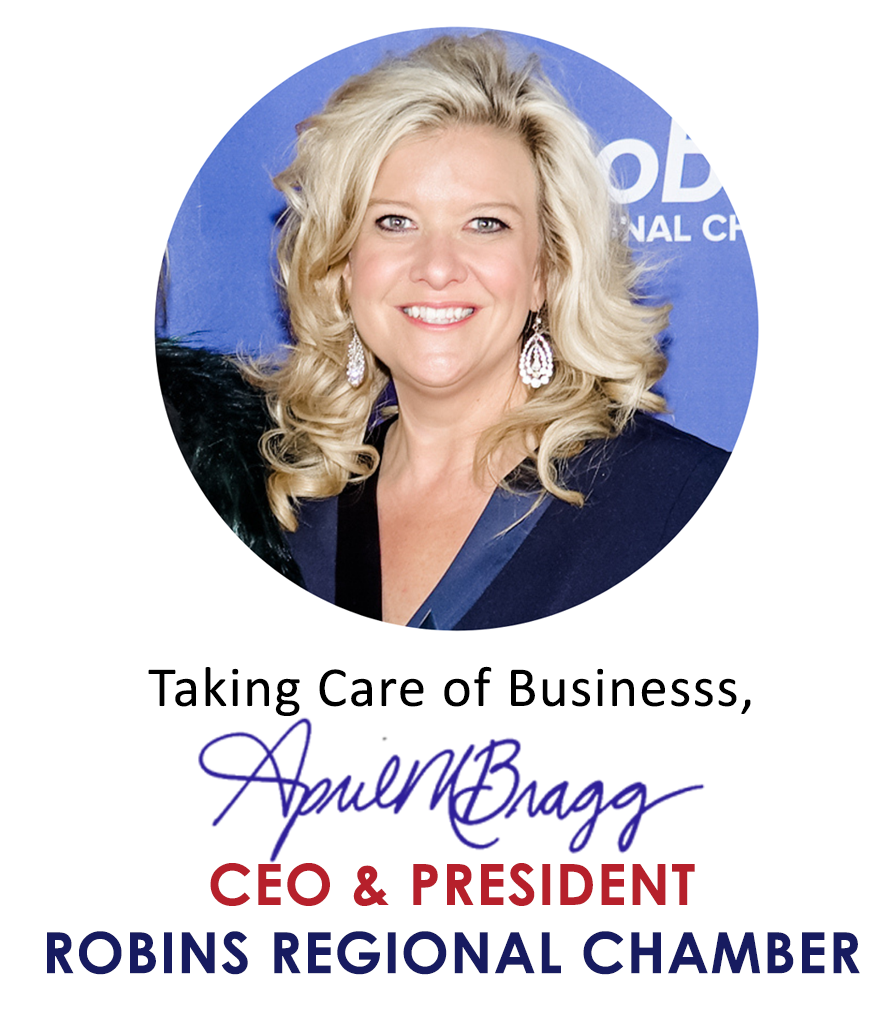MESSAGE FROM OUR PRESIDENT
As most of you know by now in addition to working for our fantastic members each day, we also manage the very active, and often very assertive, Robins To-Go Facebook group. Recently, we’ve seen an uptick in argumentative rhetoric in the group surrounding the issue of unemployment and “living” wages. To be frank, we rarely see this level of passionate negativity which borders on outright hatred; but it’s a call to action. A call for all of us to have patience and yet again extend an extra measure of grace to each other while the job market stabilizes.
Our businesses have rallied together and led through crisis before – this isn’t the first, and it surely won’t be the last. We need your help reinforcing some common sense and courtesy. We know that not everyone who chooses not to work is inherently bad, and not all employers who don’t pay “living” wages are heartless misers. Both employers and job seekers are in tight spots as they work to find a middle ground with solutions that will benefit all parties. In a search for understanding, we had a great session last Thursday with Michael Chalmers and Nicole Crofutt of Spherion Middle Georgia discussing unemployment, labor shortage, wage & benefits trends, and best practices for recruiting & retaining talent in the workplace right now. view here
Here are a few takeaways from the session as well as some general observations about the current state of the workforce. First of all, this is a very complex issue and blame can’t be assigned to just one thing – namely unemployment compensation even though it has certainly complicated things. Let’s start with the basics.
Employers are having a hard time keeping jobs filled. Why?
- There are lots more job openings than “normal” which used to not be a bad thing.
- Hiring processes have gotten more technical & less personal out of necessity.
- Lots of no-shows for interviews and other frustration points for employers
- Many employees left the job market during the pandemic because:
-
- they had/have kids at home doing school online
- they got COVID or were/are fearful of getting it
- businesses reduced staff in response to their fear of the impact of the pandemic
- Many of those employees who left the job market don’t want to return because:
-
- they started working for themselves
- they turned a side hustle into their main hustle or have found other ways to supplement their income
- they found ways to save on expenses like keeping kids at home or with a family member versus leaving them in daycare
- the supplemental unemployment benefits have made it less urgent to return to the traditional workforce
Not all jobs pay a living wage. Why?
- Not all entry-level jobs are designed to be a “living wage.” Part of the workforce may not require a living wage from their job.
-
- Teens living at home entering the workplace
- Retirees supplementing their retirement income
- Individuals who work to have a meaningful task and use of their time, not a roof over their heads.
- Not all jobs are meant to be “forever jobs.” Some are meant to be stepping stones that workers should expect to be a temporary career stop
- Many small businesses don’t have the capacity to increase wages across the board and remain viable. In practical terms, this could mean that to offer a “living wage” a business would have to reduce the number of employees or drastically increase prices, neither option providing a sustainable solution.
- Because of years of low unemployment, employers haven’t had to compete for talent at the lowest pay grade – the game has changed quicker than employers’ response.

And then there are all of these other factors we’re not including in the conversation.
- The rising costs of childcare
- The housing shortage in general, but specifically the challenge to find quality, affordable housing for singles or single-income families. The market has been slim for far too long even for those making $15/hour. It’s hard to find anything for less than $1,000/month to rent.
- Supply chain disruption, entitled (and vocal) cuss-tomers, negative online reviews, and the list goes on.
We can’t fix these issues by hoping things will magically get better, shaming people for not applying for jobs that may be beneath their skill level or just not a good fit, or even by waiting on the government to end unemployment supplements. I encourage you all to watch the video below for some “real talk” about the issues as well as practical solutions that can help you and your business right now. We are already planning our next session and would LOVE your input. Let us know what will help! That’s what we’re here for!

